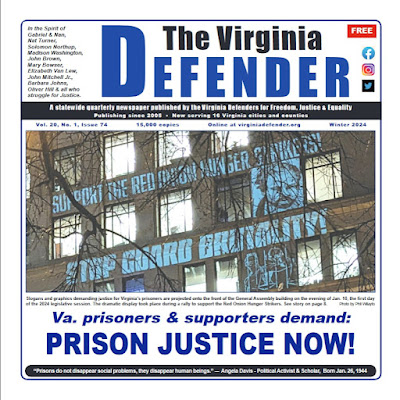The meaning of a site of conscience for the landless
Historically, the ownership of land has been central to the accumulation of wealth and political power, while the inability to own land has meant poverty and powerlessness.
For African-descended people, the loss of land began with their being torn from their African homelands and forced to work on other people’s land as an enslaved labor force. With Emancipation, they were promised “40 acres and a mule” - land, and the means to work it.
The promise was short-lived, and the formerly enslaved workforce became sharecroppers, again working land owned by others. Those who were able to obtain land, by buying it or homesteading, gradually saw their gains eroded, sometimes by the economics of agriculture, sometimes by political schemes and fraud.
For the three decades before the end of the Civil War, the Shockoe Bottom business district in Richmond, Virginia, was the center of the U.S. domestic slave trade. So many men, women and children were bought and sold here that today the majority of African-Americans could trace some ancestry to this site.
All peoples have their own sites of conscience, particular to their own history and with universal significance. But is there a difference for people who historically have been denied land in any form? Does reclaiming and memorializing a particular site have other layers of meaning for people who have had so little sites of any kind to call their own? Doesn't a site of conscience - a piece of land - have a different meaning for a people who have historically been denied land?
For African-descended people, the loss of land began with their being torn from their African homelands and forced to work on other people’s land as an enslaved labor force. With Emancipation, they were promised “40 acres and a mule” - land, and the means to work it.
The promise was short-lived, and the formerly enslaved workforce became sharecroppers, again working land owned by others. Those who were able to obtain land, by buying it or homesteading, gradually saw their gains eroded, sometimes by the economics of agriculture, sometimes by political schemes and fraud.
Today in the United States, with its overwhelmingly urban population, wealth is still largely determined by the ownership of land: real estate. Owning your own house, on your own land, is the single biggest factor in accumulating wealth and passing it down to one’s descendants - and one of the major reasons for the difference in wealth between those descended from Europe and those descended from Africa.
Shockoe Bottom is a piece of land with many layers of meaning: suffering and resistance, an end to one way of life and the beginning of another, a place where families were torn apart and a new people was born. A place where a people’s right to self-determination was born out of their re-creation as an oppressed people.
Shockoe Bottom is a piece of land with many layers of meaning: suffering and resistance, an end to one way of life and the beginning of another, a place where families were torn apart and a new people was born. A place where a people’s right to self-determination was born out of their re-creation as an oppressed people.
For the three decades before the end of the Civil War, the Shockoe Bottom business district in Richmond, Virginia, was the center of the U.S. domestic slave trade. So many men, women and children were bought and sold here that today the majority of African-Americans could trace some ancestry to this site.
All peoples have their own sites of conscience, particular to their own history and with universal significance. But is there a difference for people who historically have been denied land in any form? Does reclaiming and memorializing a particular site have other layers of meaning for people who have had so little sites of any kind to call their own? Doesn't a site of conscience - a piece of land - have a different meaning for a people who have historically been denied land?
